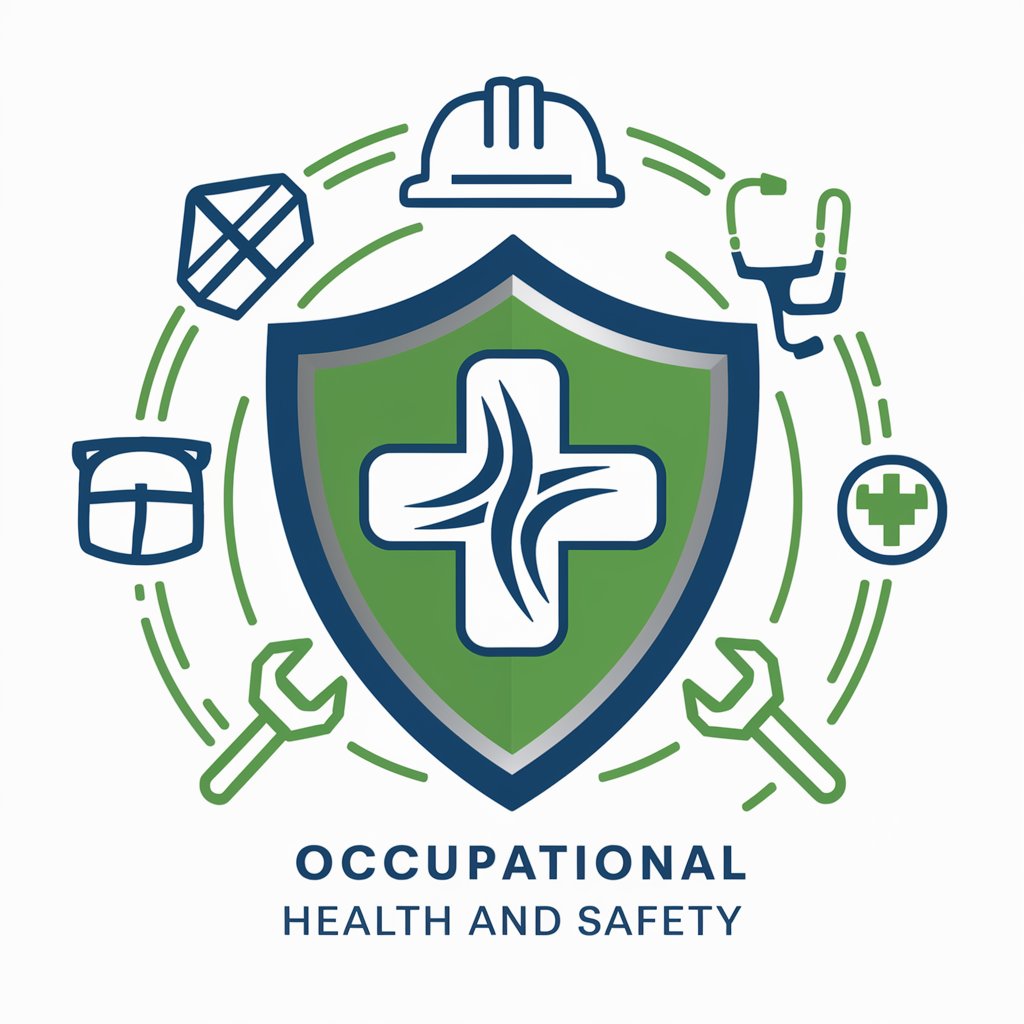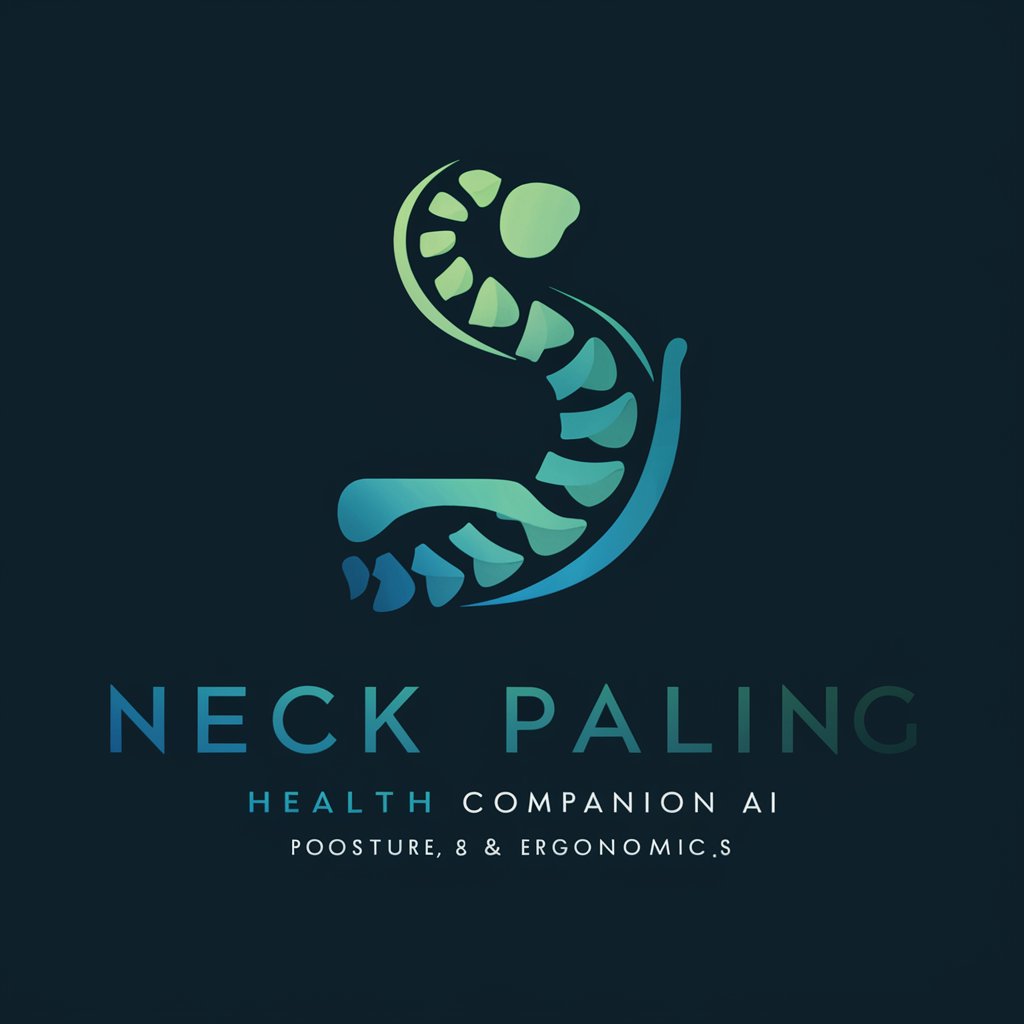5 GPTs for Ergonomic Consulting Powered by AI for Free of 2025
AI GPTs for Ergonomic Consulting refer to the specialized use of Generative Pre-trained Transformers in the field of ergonomics. These tools are designed to provide tailored solutions for ergonomic assessment, workspace design, and employee well-being. By leveraging advanced AI algorithms, they offer insights and recommendations specific to ergonomic considerations, helping professionals optimize work environments for health, safety, and productivity.
Top 5 GPTs for Ergonomic Consulting are: Workplace Health & Safety 🏥👷♂️ GPT,Neck Pain,👩⚕️Your AI Occupational Therapist🛠️,SpineDoc,🧘♂️ Workplace Zen Guru 🌱
Workplace Health & Safety 🏥👷♂️ GPT
AI-Powered Workplace Safety Expert

Neck Pain
AI-powered neck pain and posture advisor

👩⚕️Your AI Occupational Therapist🛠️
Empowering Lives with AI-Powered Occupational Therapy

SpineDoc
Enhance your spine health with AI-driven advice

🧘♂️ Workplace Zen Guru 🌱
Empowering Workplace Wellness with AI

Key Characteristics of AI GPTs in Ergonomics
These tools stand out for their adaptability, supporting a range of functions from basic ergonomic assessments to complex workspace redesigns. Unique features include natural language processing for easy communication, technical support for in-depth analysis, web searching for latest ergonomic trends, image creation for visualizing workspace layouts, and data analytics for evidence-based recommendations.
Who Benefits from Ergonomic AI GPTs?
The target audience includes ergonomic consultants, workplace designers, health and safety officers, and HR professionals. These tools are user-friendly for beginners, yet offer advanced customization for tech-savvy users. They bridge the gap between expert knowledge and practical implementation, making ergonomic solutions more accessible to a wider audience.
Try Our other AI GPTs tools for Free
Medical Specialties
Discover how AI GPTs for Medical Specialties are transforming healthcare with advanced, tailored AI solutions for diagnostics, research, and patient care.
UI Components
Discover how AI GPTs for UI Components revolutionize the design process, offering automated code generation, design insights, and tailored solutions to enhance user interfaces.
Project Templating
Discover how AI GPTs for Project Templating can transform your project management process, offering tailored, efficient, and intelligent solutions for any project.
Economic Theory
Discover the cutting-edge AI GPTs for Economic Theory, designed to revolutionize how we analyze, interpret, and predict economic trends and models. Explore their unique features and how they cater to both novices and professionals in the economic field.
Evolutionary Adaptation
Discover AI GPT tools tailored for Evolutionary Adaptation, designed to advance research, education, and conservation efforts in evolutionary biology with cutting-edge AI technology.
Legal Documents
Discover how AI GPTs for Legal Documents can transform your legal document management with efficient, accurate, and customized solutions.
Further Perspectives on Ergonomic AI GPTs
These GPTs tools revolutionize ergonomic consulting by providing user-friendly interfaces and seamless integration with existing systems. They offer customized solutions across various sectors, enhancing ergonomic practices through advanced AI technology.
Frequently Asked Questions
What are AI GPTs for Ergonomic Consulting?
They are advanced AI tools designed to assist in ergonomic assessment and workspace optimization, using the capabilities of Generative Pre-trained Transformers.
Who can benefit from these tools?
Ergonomic consultants, workplace designers, health and safety professionals, and HR staff can all benefit from these AI tools.
Do I need coding skills to use these tools?
No, these tools are designed to be user-friendly for non-programmers, while also offering customization options for those with coding expertise.
Can these tools adapt to different ergonomic needs?
Yes, they are highly adaptable and can be tailored to various ergonomic assessments and solutions.
Do they offer technical support for complex issues?
Yes, technical support is a key feature, aiding in complex ergonomic analyses and recommendations.
Can the tools perform data analysis for ergonomic studies?
Absolutely, they are equipped with data analysis capabilities to inform evidence-based ergonomic decisions.
Are they capable of creating images for workspace design?
Yes, image creation is one of their features, useful for visualizing and planning workspace layouts.
How do these tools integrate with existing systems?
They are designed to be compatible with existing systems, allowing for seamless integration into current workflows.